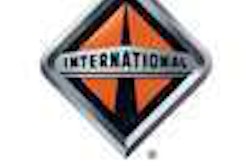The California Air Resources Board (CARB) on Tuesday, Dec. 9, said a long-term study found that trucking industry workers who have had regular exposure to diesel and other types of vehicle exhaust showed an elevated risk of lung cancer with increasing years of work.
Later this week, CARB is scheduled to vote on a statewide truck and bus regulation that would require the owners of diesel-powered commercial trucks to begin installing diesel particulate filters, with virtually all trucks so equipped by 2014.
The research published in the journal Environmental Health Perspectives – published by the National Institute of Environmental Health Sciences – comes from a study, “Lung Cancer and Vehicle Exhaust in Trucking Industry Workers” conducted by E. Garshick and colleagues. The researchers assessed lung cancer deaths by job type in 31,135 Teamsters Union members from 1985 to 2000.
“We’ve known for more than a decade that exhaust from diesel trucks is dangerous,” said CARB Chairman Mary Nichols. “The more we study these emissions, the more dangerous it appears.”
Using the National Death Index database, the study tracked men who were at least 39 years old in 1985 and had at least one year of employment in trucking at the time. The incidence of lung cancer rose over time, researchers concluded. Among workers, long-haul and pickup-and-delivery (P&D) drivers, dockworkers and people who worked as both dockworkers and P&D drivers had an increased risk compared to workers in other job categories, such as clerks and mechanics.
Lacking data on whether specific individuals studied smoked, the study adjusted its results for likely smoking activity based on a survey of active and retired trucking industry workers.
“This study simply shows that older outdated engines, which are no longer being produced, may have been more hazardous than those used today,” says ATA spokeswoman Tiffany Wlazlowski.
“The fact that those engines produced higher emissions was the impetus for the progressive approach the trucking industry has taken to not only reduce negative effects on the environment, but also improve the health of highly-valued drivers,” Wlazlowski says. She notes that trucking is the first freight industry to widely deploy advanced diesel engine emissions control systems.
Heavy-duty trucks built after 2006 incorporate the diesel particulate filters that CARB is proposing to require as retrofits, reducing tailpipe emissions of particulate matter by 90 percent. CARB’s principal focus with the statewide truck and bus regulations is not the typical long-haul trucking operation that is operating newer, cleaner equipment — but rather short-haul operators that often operate much older equipment.
On the other hand, CARB this week also is considering a greenhouse gas reduction measure that would affect long-haul trucking operations far more significantly than local California operations.
For detailed results of the study on vehicle exhaust and lung cancer in the trucking industry, see the EHP article.









